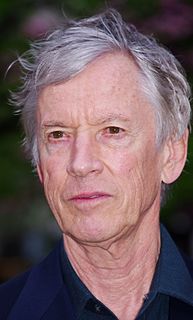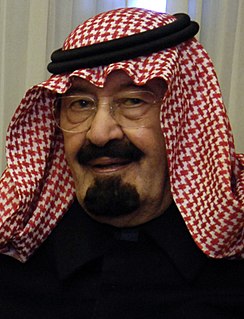A Quote by Desmond Tutu
I regard Abraham as my ancestor. Some of the greatest inspiration I have got has come from what we call the Old Testament prophets and what Jews would say "our prophets."
Related Quotes
It's not as if the New Testament writers came along and said, "The culmination of Old Testament books is more books, New Testament books." In some ways they thought instead of the culmination of Old Testament books being Christ himself, the word incarnate as the opening verses of Hebrews 1 put it. In the past God spoke to the fathers by the prophets, but in these last days he has spoken to us by his son and the son is revelation.
The greatest events that have been spoken of by all the Holy Prophets will come along so naturally as the consequences of certain causes, that unless our eyes are enlightened by the Spirit of God, and the spirit of revelation rests upon us, we will fail to see that these are the events predicted by the Holy Prophets.
Prophet just means intellectual. They were people giving geopolitical analysis, moral lessons, that sort of thing. We call them intellectuals today. There were the people we honor as prophets, there were the people we condemn as false prophets. But if you look at the biblical record, at the time, it was the other way around. The flatterers of the Court of King Ahab were the ones who were honored. The ones we call prophets were driven into the desert and imprisoned.
In the Bible and Holy Qur'an, God shows us through the life of His prophets and messengers that none of them came into the world to do their work without severe opposition against them. That was with Abraham, Noah, Lot, Moses, Jesus and Muhammad, peace be upon them all and all the prophets and messengers in between. That is our role today.
Indeed, the sort of crimes and even the amount of delinquency that fill the prophets of Israel with dismay do not go beyond that which we regard as normal, as typical ingredients of social dynamics. To us a single act of injustice--cheating in business, exploitation of the poor--is slight; to the prophets, a disaster. To us injustice is injurious to the welfare of the people; to the prophets it is a deathblow to existence: to us, an episode; to them, a catastrophe, a threat to the world.
Damon Lindelof said, "There are three kinds of prophets - crazy people, like the Guilty Remnant, false prophets, who just want money, sexy and power and use that to get it, and real prophets - and you're a real prophet in 'The Leftovers'. The voices that speak to you never tell you a lie." And I said, "Name me some real prophets." He said, "Buddha, Jesus and Muhammad." I said, "Which one am I?" And he said, "None of them. You're probably closer to Moses than anyone."
Go back to the Bible, the Old Testament. I mean there were people who we would call intelectuals, there, they were called prophets, but they were basically intelectuals: they were people who were doing critical, geopolitical analysis, talking about the decisions of the king were going to lead to destruction; condemning inmorality, calling for justice for widows and orphans. What we would call dissident intelectuals. Were they nicely treated? No, they were driven into the desert, they were imprisoned, they were denounced. They were intelectuals who conformed.






































